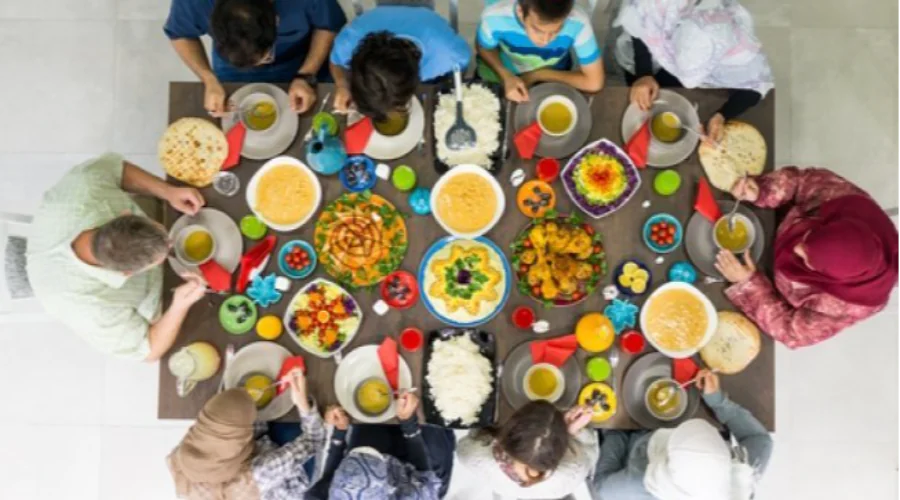
- 27 Apr
- 2023
Ilustrasi gambar (Shutterstock)
UM Surabaya Nutritionist: Here's How to Maintain a Healthy Post-Eid Diet
Eid is the moment awaited by Muslims after one month of fasting. When visiting relatives, one tends to eat the various dishes served. Typical foods during Eid tend to be fatty, for example chicken opor, rendang, meatballs and others. This condition causes a person to be unable to control the food consumed.
To maintain a diet after Eid, UM Surabaya Nutritionist Tri Kurniawati shared several things that need to be done:
According to Tri, the first thing to do is get used to eating breakfast with a balanced menu. Breakfast or breakfast is the consumption of food before doing activities. Breakfast is needed to fill an empty stomach for 8-10 hours and is beneficial in increasing learning concentration and physical abilities.
"Breakfast is included in the general guidelines for balanced nutrition. Breakfast with a variety of foods will meet nutritional needs to maintain body freshness and increase productivity at work," said Tri Thursday (27/4/23)
Tri explained, for children, eating breakfast will facilitate concentration in learning so that learning achievement can be further improved. Breakfast can also reduce the consumption of unhealthy foods while in the work environment, this is because the stomach is full and nutritional needs are met.
Second, discipline sports. One of the benefits of exercise is that it helps lower body cholesterol. When doing sports, the body moves and helps the body burn existing calories so as to produce the energy the body needs to work. This will help the body reduce the accumulation of fat in the body.
“Regular exercise can also burn LDL cholesterol and triglycerides and increase levels of good cholesterol (HDL). This really helps the body stay fit and reduces the risk of high blood pressure, stroke, obesity, and heart disease. Simple sports that can be done include leisurely walks, gymnastics, swimming, running and cycling," Tri added.
Third, multiply the consumption of water. A person is advised to consume as much as 2 liters of water per day. Water helps the digestive system to remove waste from the body. Therefore, the benefits of water are considered to help you lose weight. Water also helps the stomach feel full so that someone will eat less.
Tri explained, in a study it was stated that drinking half a liter (17 ounces) of water can increase metabolism by 24-30 percent for 1.5 hours.
"This shows that drinking two liters of water per day can increase total energy expenditure by up to 96 calories per day. Water can also increase nutrient absorption," Tri concluded.










(0) Comments